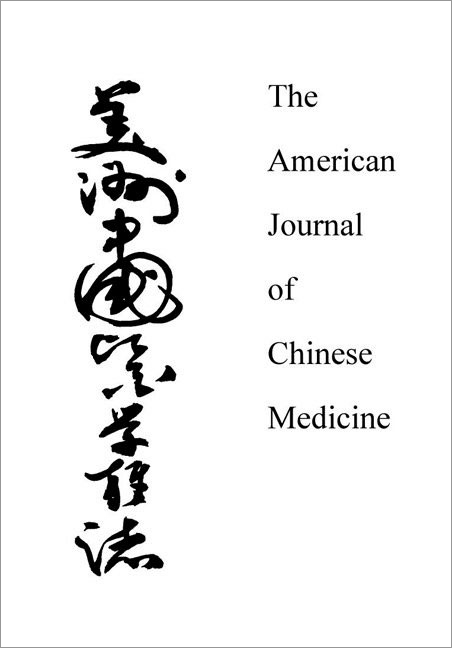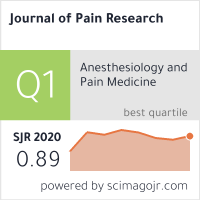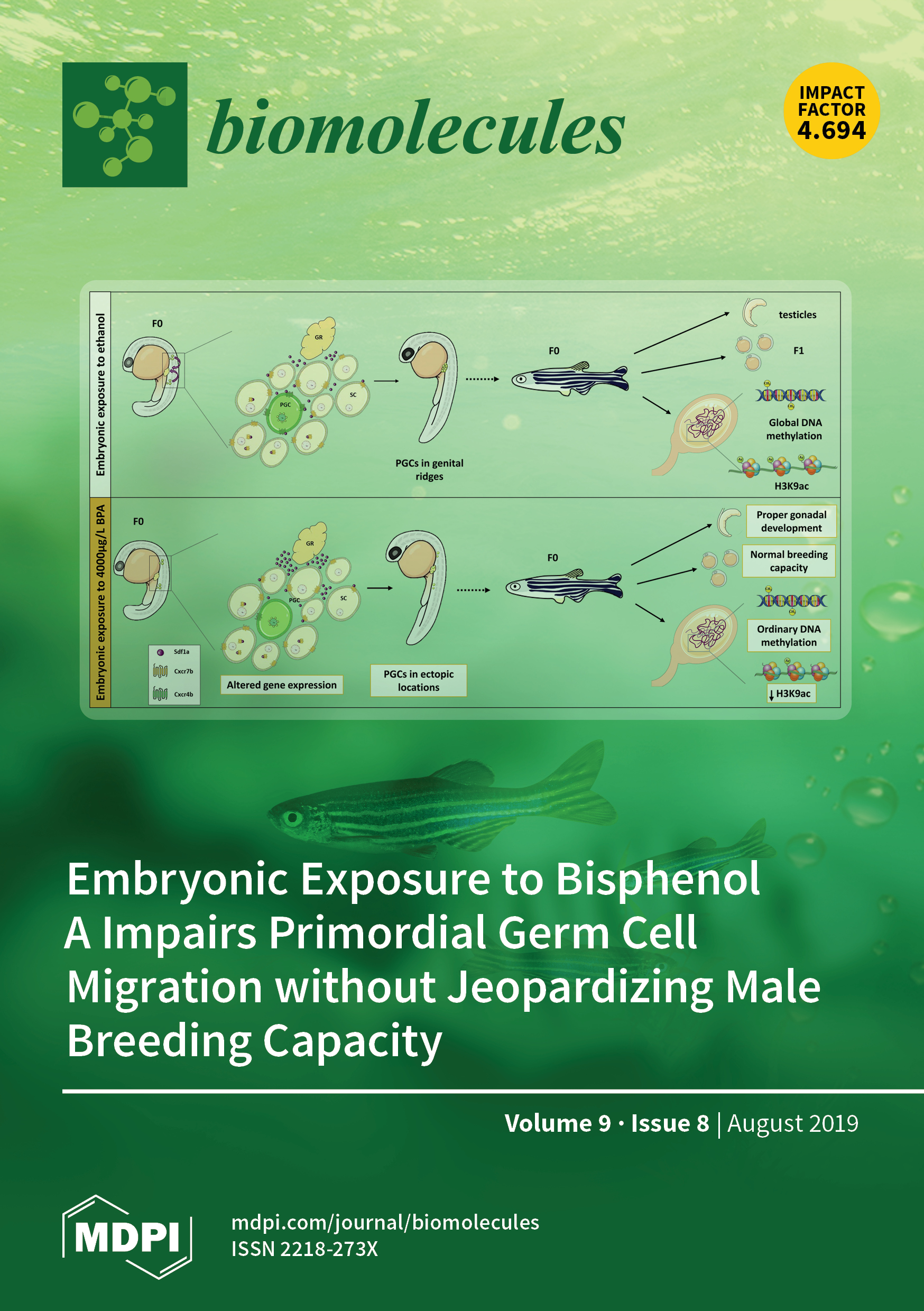Autoimmune Diseases
How to submit an article:
- Registered users can submit any published journal article that has a unique DOI (Digital Object Identifier) name or link to Research Hub.
- For example, you can paste the full DOI link:
https://doi.org/10.1109/5.771073or just the DOI name:10.1109/5.771073into the field above and click submit. - The person who is first to submit a valid article to Research Hub will forever be credited for it, and every article submission earns you +6 Research Points.
Related Topics
Published research studies are articles that present the findings of original research that has undergone a peer-review process and has been made publicly available in scholarly journals, books or other media.

Intermittent fasting: A promising dietary intervention for autoimmune diseases
2023 Oct Autoimmunity Reviews Barati M, Ghahremani A, Namdar Ahmadabad H
Systematic Review Intermittent Fasting Type 1 Diabetes Autoimmune Diseases Rheumatoid ArthritisIntermittent fasting may potentially influence autoimmune diseases like type 1 diabetes and rheumatoid arthritis, by reducing inflammation and supporting cellular repair mechanisms.

Therapeutic Effect and Mechanism of Acupuncture in Autoimmune Diseases
2022 Mar 10 The American Journal of Chinese Medicine Jing Wang, Fangyi Zhu, Wei Huang, Zhengyi Chen, Ping Zhao, Yanting Lei, et al.
Review Article Rheumatoid Arthritis Inflammatory Bowel Disease Multiple SclerosisAcupuncture shows promising results in managing autoimmune diseases by potentially regulating immune responses.

Effect of Acupuncture on Pain, Fatigue, Sleep, Physical Function, Stiffness, Well-Being, and Safety in Fibromyalgia: A Systematic Review and Meta-Analysis
2022 Feb Journal of Pain Research Zheng C, Zhou T
Systematic Review Meta-Analysis Autoimmune Diseases FibromyalgiaAcupuncture is more effective than control treatment in alleviating pain and improving well-being in both the short- and long-term in patients with fibromyalgia.

Honey Bee Products: Preclinical and Clinical Studies of Their Anti-inflammatory and Immunomodulatory Properties
2022 Jan 03 Frontiers in Nutrition El-Seedi HR, Eid N, Abd El-Wahed AA, Rateb ME, Afifi HS, Algethami AF, et al.
Bee products, including propolis, royal jelly, honey, bee venom, and bee pollen, show potential therapeutic effects in regulating inflammatory mediator production, improving immune response, and acting as anti-inflammatory, immune protective, antioxidant, anti-apoptotic, and antimicrobial agents.
Review Article
Vitamin D Resistance as a Possible Cause of Autoimmune Diseases: A Hypothesis Confirmed by a Therapeutic High-Dose Vitamin D Protocol
2021 Apr 07 Frontiers in Immunology Lemke D, Klement RJ, Schweiger F, Schweiger B, Spitz J
We argue that acquired vitamin D resistance provides a plausible pathomechanism for the development of autoimmune diseases, which could be treated using high-dose vitamin D3 therapy.
Theoretical Article Vitamin DResearch insights are moderated by the Research Hub team and offer an at-a-glance overview of interesting research findings.

2023 Autoimmunity Reviews
Intermittent fasting may potentially influence autoimmune diseases like type 1 diabetes and rheumatoid arthritis, by reducing inflammation and supporting cellular repair mechanisms.
Systematic Review Intermittent Fasting Rheumatoid Arthritis Type 1 Diabetes
Intermittent fasting: A promising dietary intervention for autoimmune diseases
Barati M, Ghahremani A, Namdar Ahmadabad H

2022 The American Journal of Chinese Medicine
Acupuncture shows promising results in managing autoimmune diseases by potentially regulating immune responses.
Review Article Inflammatory Bowel Disease Multiple Sclerosis Rheumatoid Arthritis
Therapeutic Effect and Mechanism of Acupuncture in Autoimmune Diseases
Jing Wang, Fangyi Zhu, Wei Huang, Zhengyi Chen, Ping Zhao, Yanting Lei, et al.

2022 Journal of Pain Research
Acupuncture is more effective than control treatment in alleviating pain and improving well-being in both the short- and long-term in patients with fibromyalgia.
Systematic Review Fibromyalgia
Effect of Acupuncture on Pain, Fatigue, Sleep, Physical Function, Stiffness, Well-Being, and Safety in Fibromyalgia: A Systematic Review and Meta-Analysis
Zheng C, Zhou T

2020 Biomolecules
Avocado and soybean unsaponifiables may effectively reduce inflammation and symptoms related to osteoarthritis, autoimmune diseases, and menopause.
Review Article Avocado-Soybean Unsaponifiables Menopause Osteoarthritis
Avocado–Soybean Unsaponifiables: A Panoply of Potentialities to Be Exploited
Salehi B, Rescigno A, Dettori T, Calina D, Docea AO, Singh L, et al.

2013 Evidence-Based Complementary and Alternative Medicine
Acupuncture and moxibustion therapy show greater effectiveness than oral sulphasalazine in treating inflammatory bowel diseases.
Systematic Review Inflammatory Bowel Disease Inflammatory Bowel Diseases Moxibustion
Acupuncture and Moxibustion for Inflammatory Bowel Diseases: A Systematic Review and Meta-Analysis of Randomized Controlled Trials
Ji, J., Lu, Y., Liu, H., et al.
Review Articles
Review articles summarise and critically evaluate the current state of research on a specific topic or field by synthesising multiple primary research studies.

Intermittent fasting: A promising dietary intervention for autoimmune diseases
2023 Oct Autoimmunity Reviews Barati M, Ghahremani A, Namdar Ahmadabad H
Systematic Review Intermittent Fasting Type 1 Diabetes Autoimmune Diseases Rheumatoid ArthritisIntermittent fasting may potentially influence autoimmune diseases like type 1 diabetes and rheumatoid arthritis, by reducing inflammation and supporting cellular repair mechanisms.

Therapeutic Effect and Mechanism of Acupuncture in Autoimmune Diseases
2022 Mar 10 The American Journal of Chinese Medicine Jing Wang, Fangyi Zhu, Wei Huang, Zhengyi Chen, Ping Zhao, Yanting Lei, et al.
Review Article Rheumatoid Arthritis Inflammatory Bowel Disease Multiple SclerosisAcupuncture shows promising results in managing autoimmune diseases by potentially regulating immune responses.
No access to full-text —Rachael L 7 Apr 2022

Effect of Acupuncture on Pain, Fatigue, Sleep, Physical Function, Stiffness, Well-Being, and Safety in Fibromyalgia: A Systematic Review and Meta-Analysis
2022 Feb Journal of Pain Research Zheng C, Zhou T
Systematic Review Meta-Analysis Autoimmune Diseases FibromyalgiaAcupuncture is more effective than control treatment in alleviating pain and improving well-being in both the short- and long-term in patients with fibromyalgia.

Honey Bee Products: Preclinical and Clinical Studies of Their Anti-inflammatory and Immunomodulatory Properties
2022 Jan 03 Frontiers in Nutrition El-Seedi HR, Eid N, Abd El-Wahed AA, Rateb ME, Afifi HS, Algethami AF, et al.
Bee products, including propolis, royal jelly, honey, bee venom, and bee pollen, show potential therapeutic effects in regulating inflammatory mediator production, improving immune response, and acting as anti-inflammatory, immune protective, antioxidant, anti-apoptotic, and antimicrobial agents.
Review Article
Avocado–Soybean Unsaponifiables: A Panoply of Potentialities to Be Exploited
2020 Jan 13 Biomolecules Salehi B, Rescigno A, Dettori T, Calina D, Docea AO, Singh L, et al.
Review Article Avocado-Soybean Unsaponifiables Menopause OsteoarthritisAvocado and soybean unsaponifiables may effectively reduce inflammation and symptoms related to osteoarthritis, autoimmune diseases, and menopause.
Clinical Trials
Clinical trials are research studies that involve people and are conducted to evaluate the safety and efficacy of new treatments or interventions, such as drugs, medical devices, or behavioural therapies.
Study Protocols
Published study protocols are detailed plans that outline the objectives, methodology, statistical analyses, and organisation of a research study that have been made publicly available for others to review and use as a reference.
Presentation Slides

Systematic Review
Intermittent fasting may potentially influence autoimmune diseases like type 1 diabetes and rheumatoid arthritis, by reducing inflammation and supporting cellular repair mechanisms.
Barati M, Ghahremani A, Namdar Ahmadabad H

Review Article
Acupuncture shows promising results in managing autoimmune diseases by potentially regulating immune responses.
Jing Wang, Fangyi Zhu, Wei Huang, Zhengyi Chen, Ping Zhao, Yanting Lei, Yumei Liu, Xijun Liu, Bo Sun, Hulun Li

Systematic Review
Acupuncture is more effective than control treatment in alleviating pain and improving well-being in both the short- and long-term in patients with fibromyalgia.
Zheng C, Zhou T

Review Article
Avocado and soybean unsaponifiables may effectively reduce inflammation and symptoms related to osteoarthritis, autoimmune diseases, and menopause.
Salehi B, Rescigno A, Dettori T, Calina D, Docea AO, Singh L, Cebeci F, Özçelik B, Bhia M, Dowlati Beirami A, Sharifi-Rad J, Sharopov F, C. Cho W, Martins N

Systematic Review
Acupuncture and moxibustion therapy show greater effectiveness than oral sulphasalazine in treating inflammatory bowel diseases.
Ji, J., Lu, Y., Liu, H., Feng, H., Zhang, F., Wu, L., Cui, Y., & Wu, H.
Executive Summary
Write an executive summary in the form of a blog article on the topic of "Research into Chinese medicine treatment for Autoimmune Diseases" summarising the research below and using language that can be easily understood by patients and avoiding medical jargon using a professional and caring tone of voice.
Write an executive summary in the form of a blog article on the topic of "Researched Chinese medicine treatments for Autoimmune Diseases" summarising the research below in an objective and easy to understand way, and using language that can be easily understood by patients. Group the article into Chinese medicine treatments first, followed by nutrition and other treatments. Avoid using medical jargon and use a professional and caring tone of voice.
Write me a concise but easy to understand executive summary on the topic of "Chinese medicine treatments for Autoimmune Diseases" based on the following research that I will give you. Your summary should be 2 paragraphs long in Australian English spelling and include references to the studies.
A Systematic Review published in 2023 in the journal Autoimmunity Reviews found that Intermittent fasting may potentially influence autoimmune diseases like type 1 diabetes and rheumatoid arthritis, by reducing inflammation and supporting cellular repair mechanisms. Extensive research was done through several electronic databases such as PubMed, Scopus, Embase, and Web of Science. Rigorous inclusion criteria were applied to filter the most relevant studies on the effects of intermittent fasting on autoimmune diseases. No reference to further research trials was mentioned in the methodology. The results indicate a potential link between intermittent fasting and the management of certain autoimmune diseases. Autoimmune diseases like type 1 diabetes, rheumatoid arthritis, and systemic lupus erythematosus exhibited improvements owing to the reduction in inflammatory markers, improvement in gut microbiota, and enhanced cellular repair resulting from autophagy induced by intermittent fasting. However, results concerning other autoimmune diseases like multiple sclerosis, systemic lupus erythematosus, thyroid diseases, and psoriasis were inconclusive.
A Review Article published in 2022 in the journal The American Journal of Chinese Medicine found that Acupuncture shows promising results in managing autoimmune diseases by potentially regulating immune responses. The methodology of the study involved a comprehensive review of how acupuncture, a form of traditional Chinese medicine, may be employed as a treatment method for autoimmune diseases such as multiple sclerosis, rheumatoid arthritis, and inflammatory bowel disease. The research was based on existing knowledge and accumulating data, investigating the role of acupuncture in regulating immune responses during these conditions. The discussion of the results revealed that acupuncture showed promise in managing these diseases. It was noted that the positive outcomes observed might be linked to the potential of acupuncture to regulate abnormal immune responses which are characteristic of autoimmune diseases. Despite the fact that the precise mechanism through which this achieved is not fully understood, the findings indicate a promising alternative method of managing autoimmune conditions.
A Systematic Review published in 2022 in the journal Journal of Pain Research found that Acupuncture is more effective than control treatment in alleviating pain and improving well-being in both the short- and long-term in patients with fibromyalgia. This meta-analysis included 12 studies with 715 participants comparing the effects of real acupuncture with control intervention. The results indicated that acupuncture could effectively relieve pain and improve well-being in patients with FM, with both short - and long-term benefits. However, acupuncture had no effect on fatigue, sleep, physical function, and stiffness compared with control treatment. The subgroup analysis indicated that the real acupuncture group produced more analgesic effects than the control group, with different number of sessions, types of acupuncture, and stimulation. In addition, acupuncture was not associated with serious reactions and had a reliable safety profile.
A Review Article published in 2020 in the journal Biomolecules found that Avocado and soybean unsaponifiables may effectively reduce inflammation and symptoms related to osteoarthritis, autoimmune diseases, and menopause. The research involves summarizing various studies on the biological effects of the avocado-soybean unsaponifiables (ASU), highlighting its potent anti-inflammatory properties. The extracted ASU are a combination of elements derived from the fruits and seeds of avocados and soybeans. To understand its impact, the researchers categorized the applications of ASU in treating different conditions such as osteoarthritic pain, hip and knee osteoarthritis, autoimmune diseases, and menopause-related symptoms amongst postmenopausal women. The discussion revealed significant links between avocado and soybean unsaponifiables and symptom improvement in areas of osteoarthritic pain, autoimmune conditions, and postmenopause. Particularly notable is the ASU mixture's potential role as an adjunct treatment, meaning it’s meant to supplement primary treatments for such conditions. Its benefits were not only limited to physical reduction of inflammation and associated pain, but also improved mood and quality of life for postmenopausal women by significantly reducing menopause-related symptoms. The study also delves into the safety, toxicological considerations, and regulatory practices related to the use of ASU.
A Systematic Review published in 2013 in the journal Evidence-Based Complementary and Alternative Medicine found that Acupuncture and moxibustion therapy show greater effectiveness than oral sulphasalazine in treating inflammatory bowel diseases. For the methodology, seven significant databases, both domestic and international, were meticulously searched to accumulate and examine randomized controlled trials (RCTs). These trials specifically compared acupuncture and moxibustion as the main intervention to pharmacotherapy in treating Inflammatory bowel diseases (IBD). In total, 43 RCTs were incorporated and examined, 10 of which distinctly compared oral sulphasalazine with acupuncture or/and moxibustion treatments. In regards to the results received, the study found that acupuncture and moxibustion therapy displayed superior results when compared with oral sulphasalazine. This conclusion is drawn from the meta-analysis of the 10 trials focusing specifically on these treatments. Even though the systemic review presented several limitations and a definitive conclusion wasn't reached, it still laid groundwork for the potential effectiveness of acupuncture and moxibustion therapy in managing Inflammatory bowel diseases.
Moderation Tools
Topic
Sign In
Users not signed in are limited to viewing the 5 most recent items of content.
No access to full-text —Rachael L 7 Apr 2022